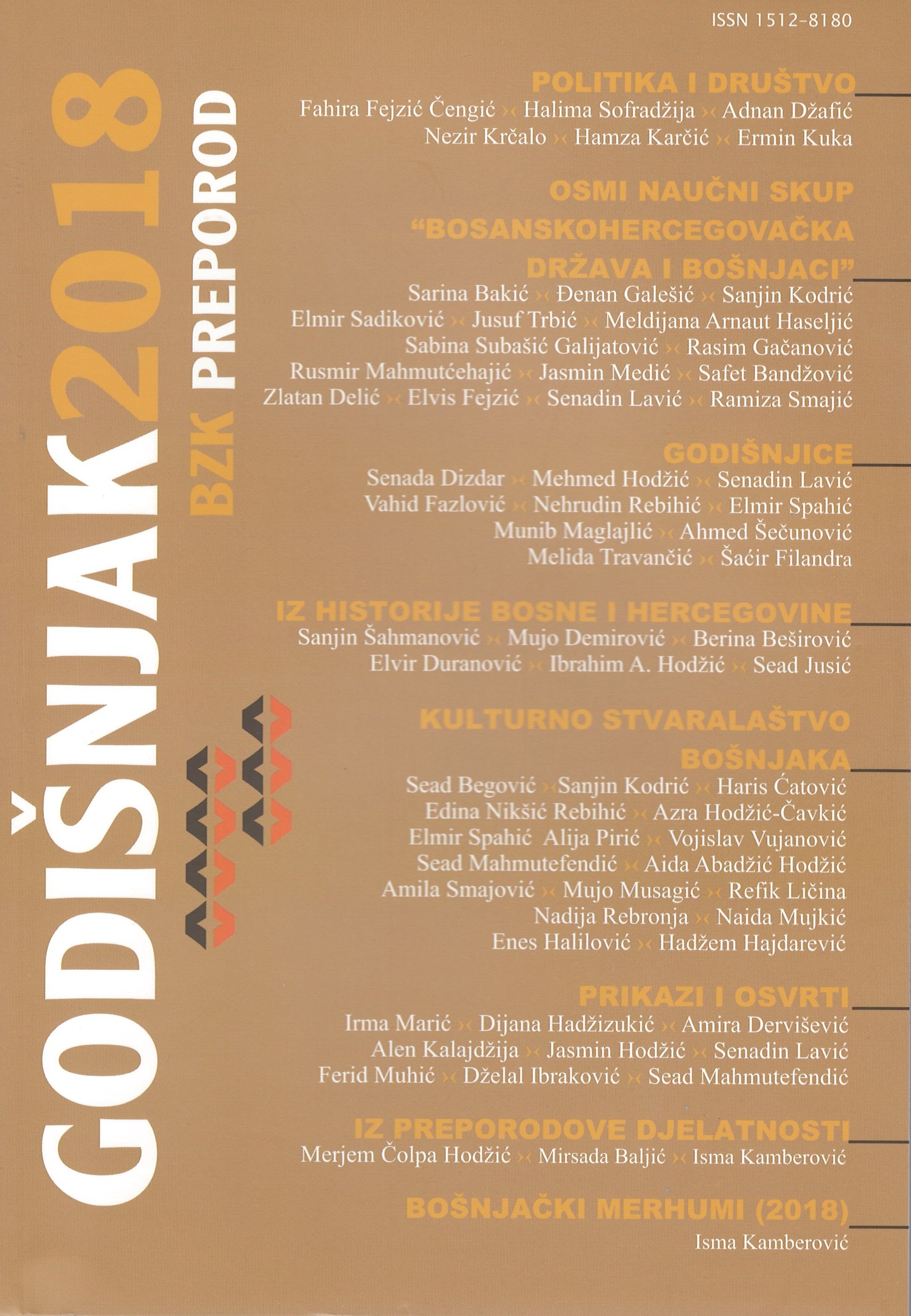Sprega ideologije i historiografije: duh „istočnog pitanja“ i širenje „kruga turske magije“
CONNECTION OF IDEOLOGY AND HISTORIOGRAPHY: THE SPIRIT OF “EASTERN QUESTIONS” AND THE EXTENSION OF “CYCLE OF TURKISH MAGIC”
Author(s): Safet BandžovićSubject(s): Ethnohistory, Military history, Political history, Politics and religion, Politics of History/Memory, Politics and Identity
Published by: Bošnjačka zajednica kulture "Preporod"
Keywords: ideology; politics; historiography; the Balkans; deosmanization; Muslims; Bosniaks; stereotypes; culture of remembering;
Summary/Abstract: Many “long-term” processes exceed the local and regional borders. Modernity is multiply connected with the past.Past has often been an excuse or a weapon for the interpretation of modernity, although it requires the inclusion of historical events as a whole. Each historiography is a product of its time, whose interests often determine issues that, especially influential scientists, supporters of the epic and the Manichaean presentation, set to a complex past, as well as answers, opposing to different perceptions. Scientifically based works nothing have changed related to history if the social and political circumstances are such that is desirable a different „consciousness“ and „culture of memory“. Conflicts, prejudices and stereotypes are introduced into science, affecting to processing and interpretation. This also applies to the study, through the „lens of orientalist big stories,“ the share of the “Eastern Issue”, in which basis was the desire to throw out the Ottoman state, Islam and Muslims as „aliens“ from Europe. The „Eastern Question“ mentality can be used as a reference framework for compiling and understanding the history of Muslims of the Balkans in the 20th century. Mentalities and ideologies are slowly changing. The predominantly negative views of Islam and Muslims are characteristic of the collective and psychological stereotypes of the Christian peoples of South East Europe. During the 1992-1995 war in Bosnia and Herzegovina, some of the key military-political actors, anti-Muslim and anti-Bosniak-oriented actors, revitalized the concept of the „Eastern Issue“, not only as a term. Islamophobia is embedded in the wider discourse of one of the Western „great tales about superiority“. Especially in the West, has never been insignificant what is known about the Ottoman Empire, Muslims and the Balkans, Bosnia and Herzegovina, Bosniaks, presented by science, but also by quasi-narrative and tendentious publicist. Such history can be researched rationally only by multi-perspective approach, distancing from nationalist categories and networked negative stereotypes − important levers of political mobilization and manipulation. Many intellectuals capacity is to articulate them, to provide „scientific arguments“ to certain political and national interests. The task of eliminating historical prejudices and stereotypes, which create phobias and lead to discrimination against the „others“, is a difficult task. Resistant has long life, but hard extermination. Reduction and generalization lead to misconceptions.
Journal: Godišnjak Bošnjačke zajednice kulture »Preporod«
- Issue Year: 2018
- Issue No: 1
- Page Range: 277-309
- Page Count: 32
- Language: Bosnian

